Each year French cinema crowns its stars during the César — the Gallic equivalent of the Oscars. The nominees for Best New Actor and Actress are those anointed by the Academy as the next generation of exceptional talent — those poised for fully-fledged stardom. To celebrate the nominees — and the winners — and see what we can except from future greats, i-D France assembled the young thespians together to find out what drives them. The one thing they all share, beside serious acting chops? A surprising humility. Get to know the bright future of French celluloid…
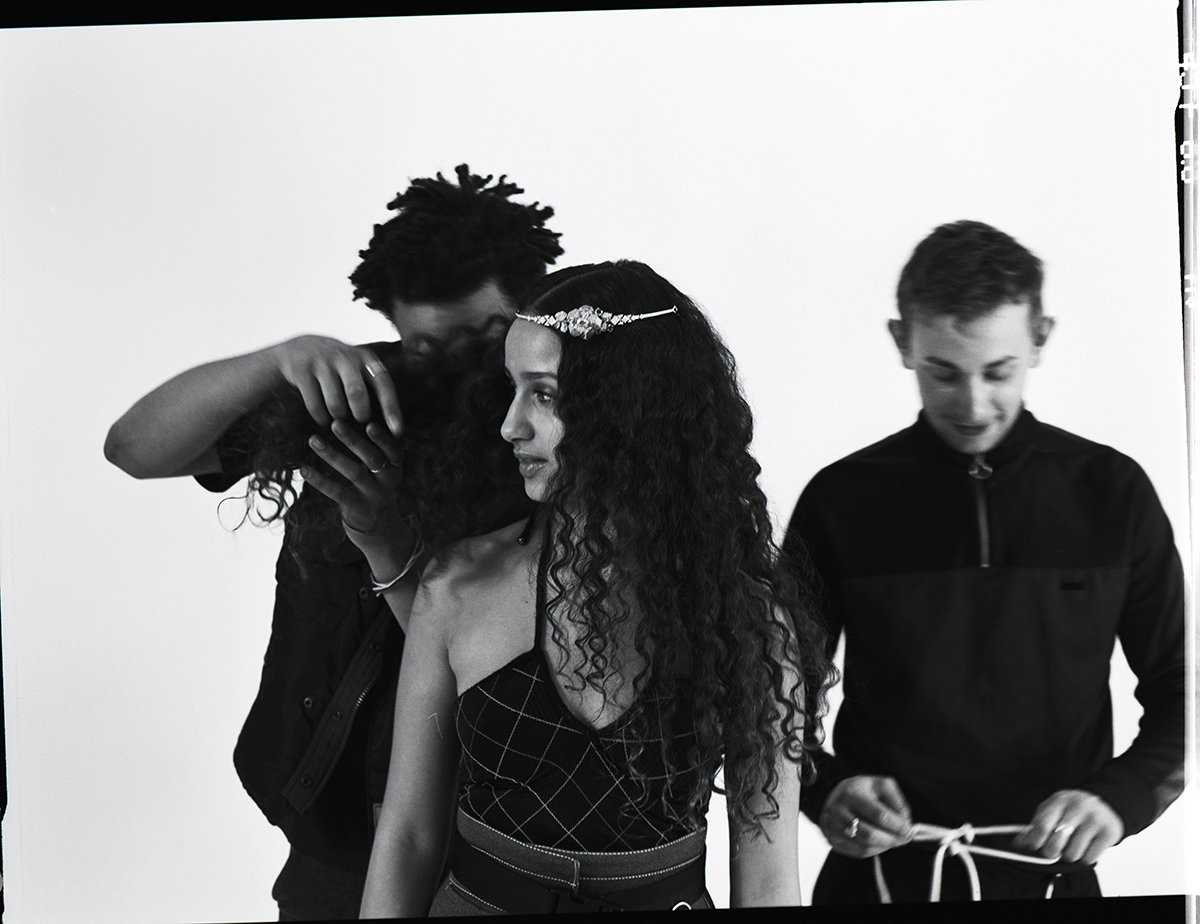
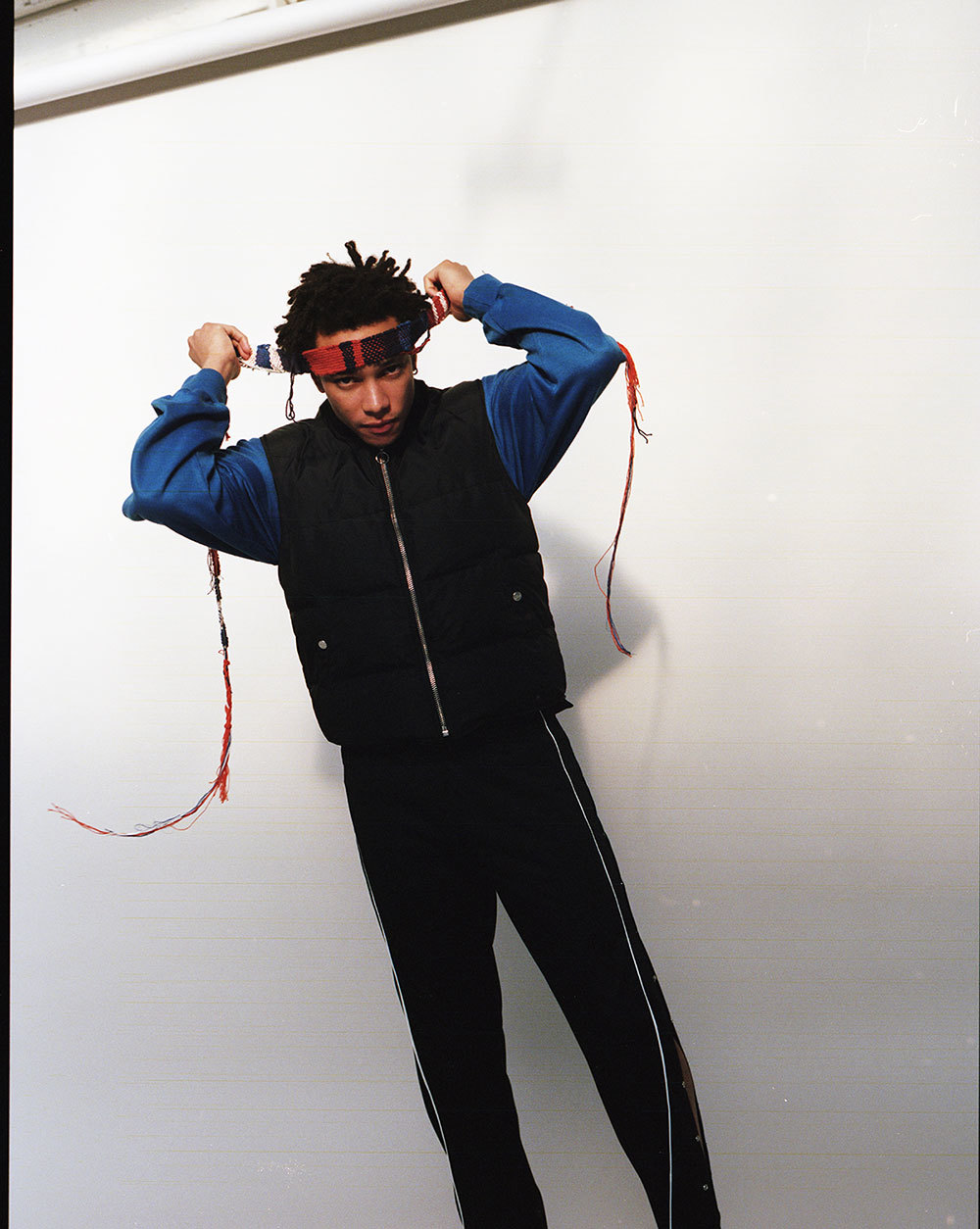
Corentin Fila, nominated for his role in Being 17 by André Téchiné.
How does it feel to be considered one of this year’s most promising actors?
It’s awesome. I’m quite proud.
It’s great recognition for a young actor.
Yes, it’s great, but you have to be conscious that these things are not always fair. But at the end of the day, it’s mainly a good thing for your career.
What do you mean by fair?
I think it’s a question of legitimacy. Some of the greatest actors will never be nominated for a César or Molière even though they might be the best artists.
You were nominated alongside your friend Kacey Mottet Klein, who was also in Being 17 — how do you feel about it?
It’s awesome. We’re really close. We spent a lot of time together while the movie was being shot, and had great times. He is like a younger brother to me.
What did you learn from doing the film?
I’ve learned a lot about confidence — putting your trust in somebody and believing in their confidence. André Téchiné gave me his trust, which was very powerful for me. When someone tells you you’re great it gives you a lot of self-confidence.
Do you think it’s important for young people to gain understanding of themselves through cinema?
Young people need this as much as everyone does in this world. Films enable you to realize that things you thought of as secondary are in fact central. You can see both the comforting side and the worrying one of reality.
What film has shaken you the most?
So many. In terms of aesthetics and poetry, I’m a big fan of Jim Jarmusch, I really loved Permanent Vacation. One of my favorite movies is Last Days by Gus van Sant, it inspired me for Being 17. In that movie loneliness is perfectly represented, real loneliness, the one before death. The camera stays far from the actors, but you feel part of the movie, as if you were with him, feeling his loneliness. I think that’s very poetic.
What is your experience of being an actor so far?
It’s weird. I question myself a lot and I have a big problem with self-centredness. Everyone is egocentric and I think being an actor increases that. When you’re in a movie, everyone is watching you and that’s a great feeling, you think the world revolves around you, but that’s bullshit. People with real humility fascinate me, those who ask themselves questions. I love acting but I’m not interested in the world around it.
Do you think it’s hard to be 17 in 2017?
It’s hard but it’s also interesting. It’s said that some eras are more favorable to the emergence of new talent — great writers, musicians, and filmmakers. Today we’re not living through a very prosperous period, harsh things are happening in the world, but I think great things are going to happen soon. When I went to Athens I fell in love with the country, the crisis happened all of a sudden, everyone there is an activist and there is an unbelievable artistic effort. When you’re 17 you can fight for many causes, there are things to be done and fought for. Something can happen.
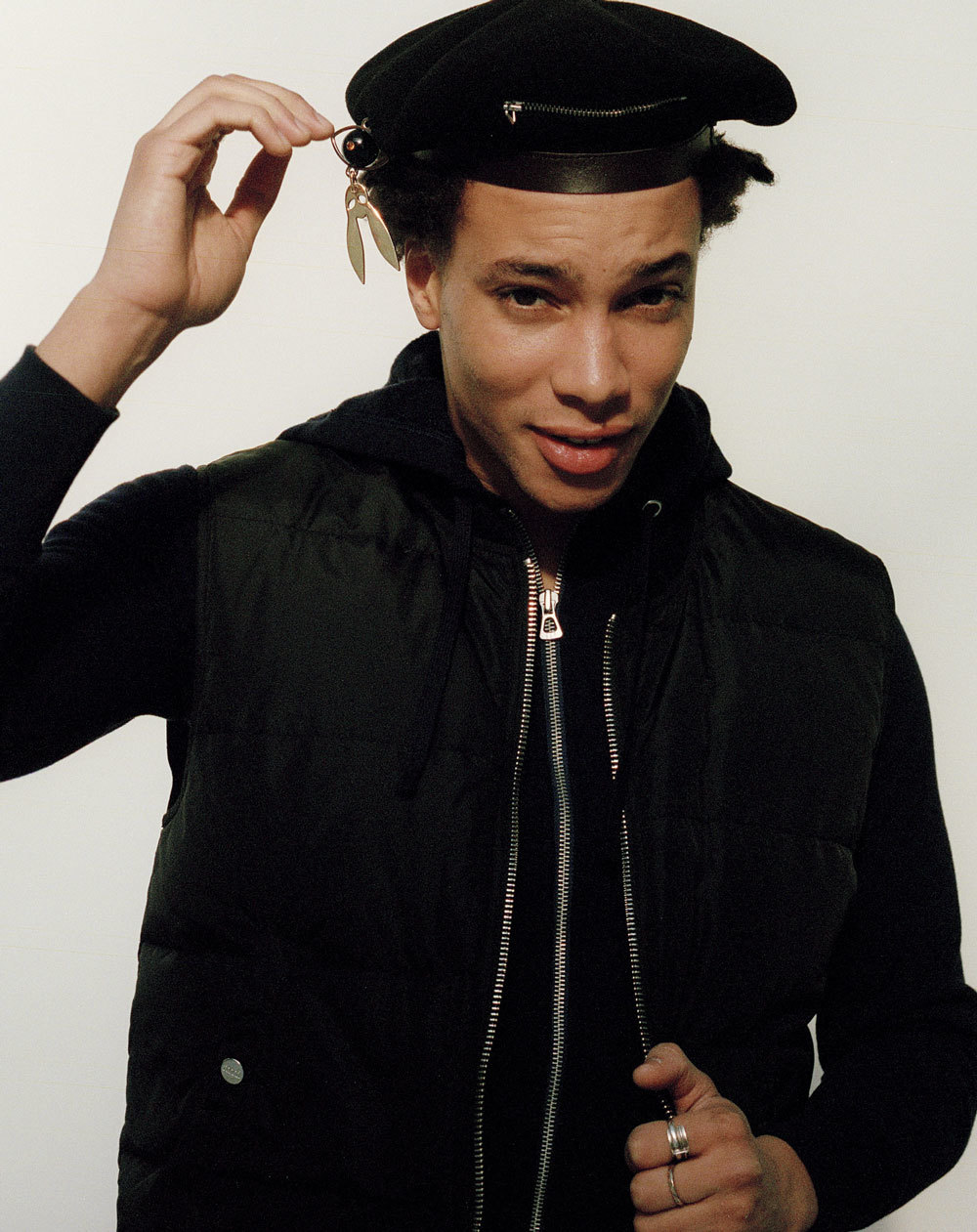
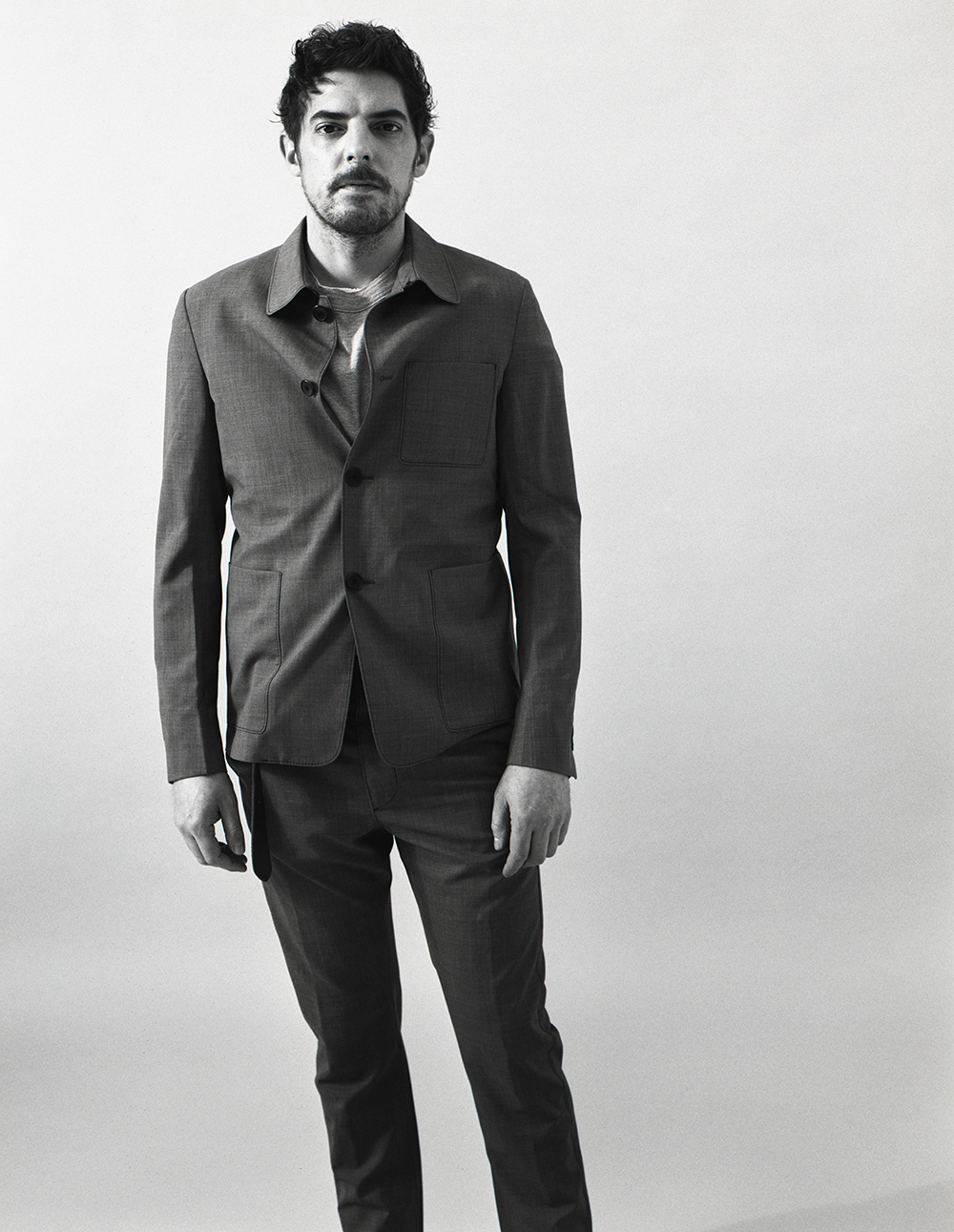
Damien Bonnard, nominated for his role in Staying Vertical by Alain Guiraudie
How do you feel about being one of this year’s most promising actors?
It’s a sign of support and an encouragement. A great feeling.
How did you get into acting?
I came to it progressively. I started to be interested in it ten years ago, and went through the motions for two years. I played a minor role, a secondary role and so on and so forth. I’ve gone through the entire process. I needed to learn, and I’ve done it through practicing. I’m still learning every day, I work with a coach to explore new things. I try to have more than one string to my bow.
How was your experience of shooting Staying Vertical?
It was quite easy, we all got along well, and everyone was going in the same direction. Alain is a very direct. Really it was only pleasure, it was fun, we were like children.
There’s an aspect of magic in this film. Do you think we need fantasy now more than ever?
Yes, I think we need to go back to tales. This movie is a tale and I think it does some good even if realistic stories are important too. It’s great to do crazy, unbelievable things sometimes.
What do you think of French cinema today?
I think it’s quite good. It could be crazier though. I think it is a bit too shy, we could take more risks.
Is there a movie that changed the way you see cinema?
Many movies. Sunset Boulevard is a beautiful movie. John Cassavetes’ movies like Minnie and Moskowitz are great. Under the Skin with Scarlett Johansson is good. Concerning stage direction and imagery these movies are great. I studied art so these aspects are important to me.
What are your career dreams for 2017?
I hope we’ll find a good distributor for an American movie I shot last summer with a young director, Nathan Silver. Apart from that I would love to work with Leos Carax.
Do you think cinema can do good?
Totally. It helps you dream and reflect about life. It’s a nourishment.
What should we take from Léo in Staying Vertical?
What he is perpetually looking for throughout the film: a state that is close to the one we are in when we come into this world and that we slowly lose. I think some days you feel happy about being alive, about being surrounded with the people you love. And Léo is looking for this exact feeling, all the time, maybe without even knowing it.
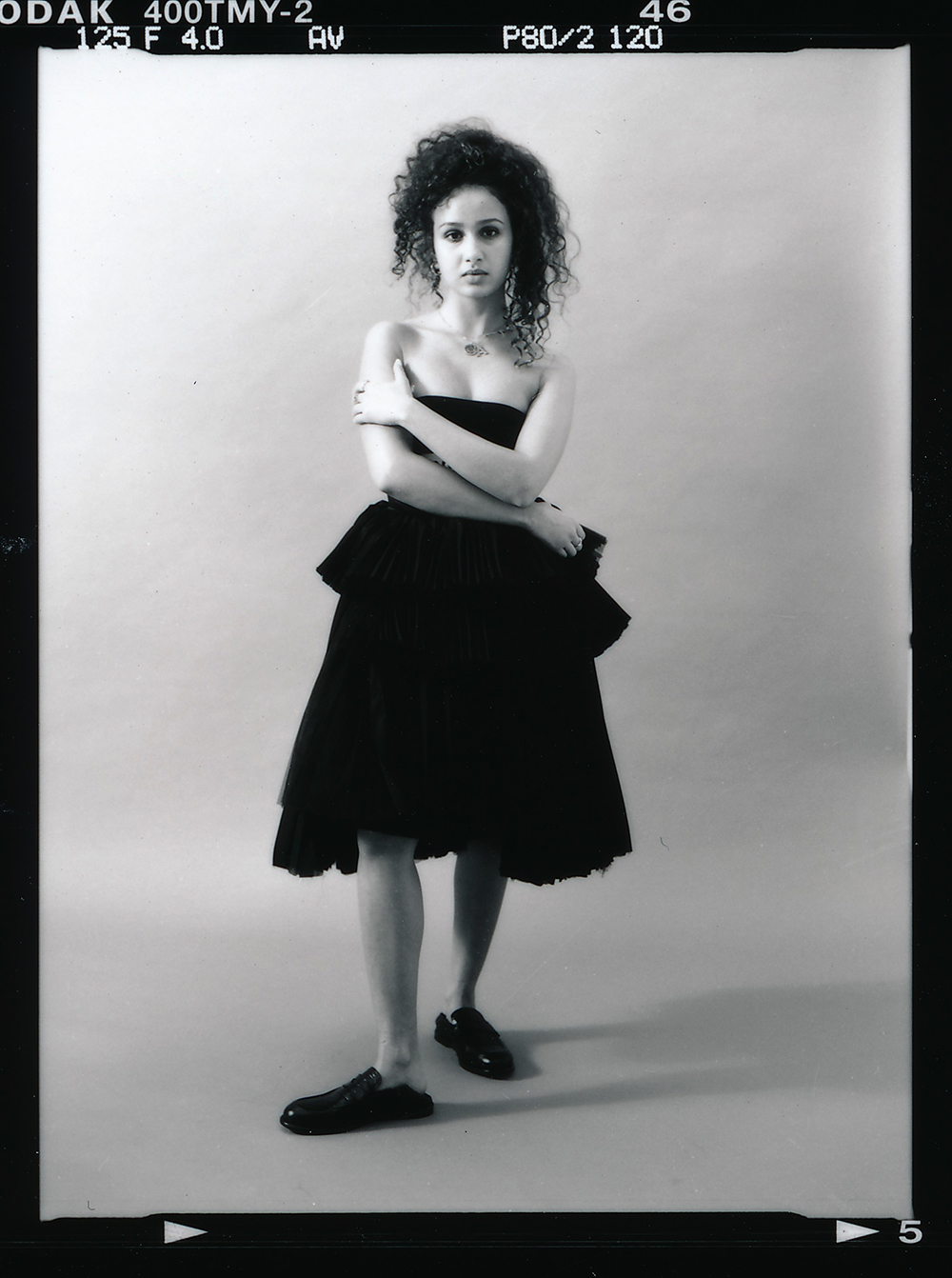
Oulaya Amamra, winner of Best New Actress for her role in Divines by Houda Benyamina.
How do you feel today?
I feel strong; this year has been particularly bizarre for me so far, full of highs and lows. But I’m happy. It was so hard to convince my sister [the director] to let me play this role and create this character. I’m very proud of the recognition I’ve received.
What does this movie mean to you?
This movie has a humanist approach; it talks about marginalized people. It’s a battle cry. It shows the rage of an unheard youth. This movie interrogates a lot of things. François Hollande saw it and afterward he said: “We have a lot of work to do.” It was very moving for me. Here in France, in 2017, children are still living without water, have no roof over their heads and can’t go to school. People don’t realize that.
What does Divines say about your generation?
We are a generation seeking recognition, looking for a spiritual leader. The movie shows how money and the material aspects of things can cause people to do anything. That’s sad but true.
Do you remember the first film that really meant something to you?
Watching Isabelle Adjani in La Reine Margot. She’s dazzling. That movie was overwhelming. And The Imaginary Invalid, which I saw at the Comédie Française when I was nine. That’s what made me determined to do this job. I was interested in theatre before movies. These two worlds are so different but so intense: in theatre I like the proximity to the audience and being in the present. The need for sincerity is similar, whether you are on stage or on a film set.
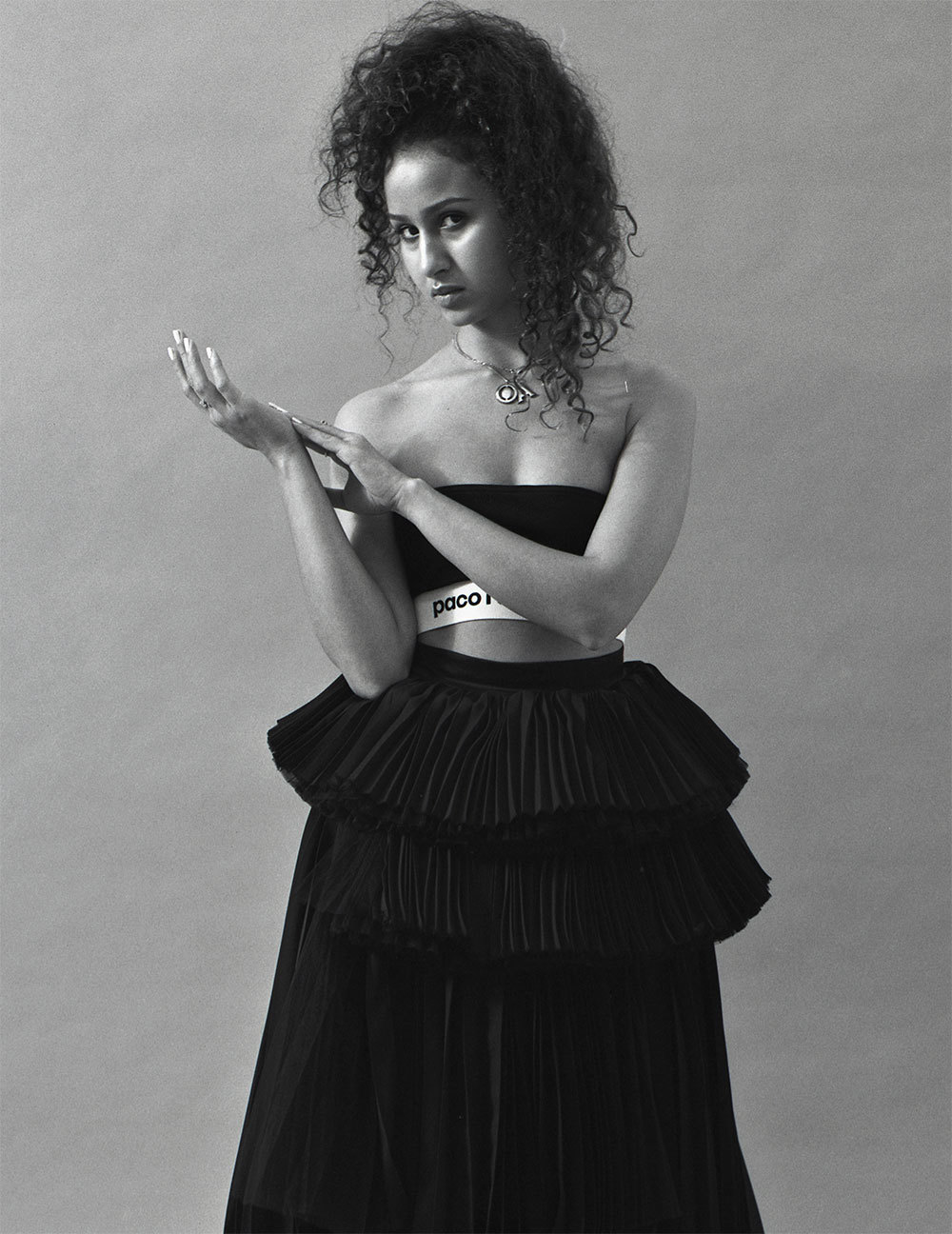
Doing what you do takes patience.
I always say that I’m not doing this for fame but because it’s my passion. If the film is a success that’s great, if it’s not, I will continue anyway. I need time to evolve. I’m going to study at the Conservatoire, and after those three years I will be free to play whatever I want. Studying at the Conservatoire will allow me to play freely. For me, every art has a base. I have been doing classical dance, which for me is the basis of every type of dance. Theatre is the same. I need confront myself with the greatest texts, the greatest authors. The Conservatoire will allow me to make mistakes, to lose myself, to play different characters.
What are your career dreams?
To be part of the Comédie Française. To have the opportunity to act in the movies of my favorite directors: Haneke, Scorsese, Park Chan-wook…
What are your hopes for the world in 2017?
We need to gather together. There is strength in unity. Together we participated in the French Revolution. Let’s try and gather together just like in 1789.
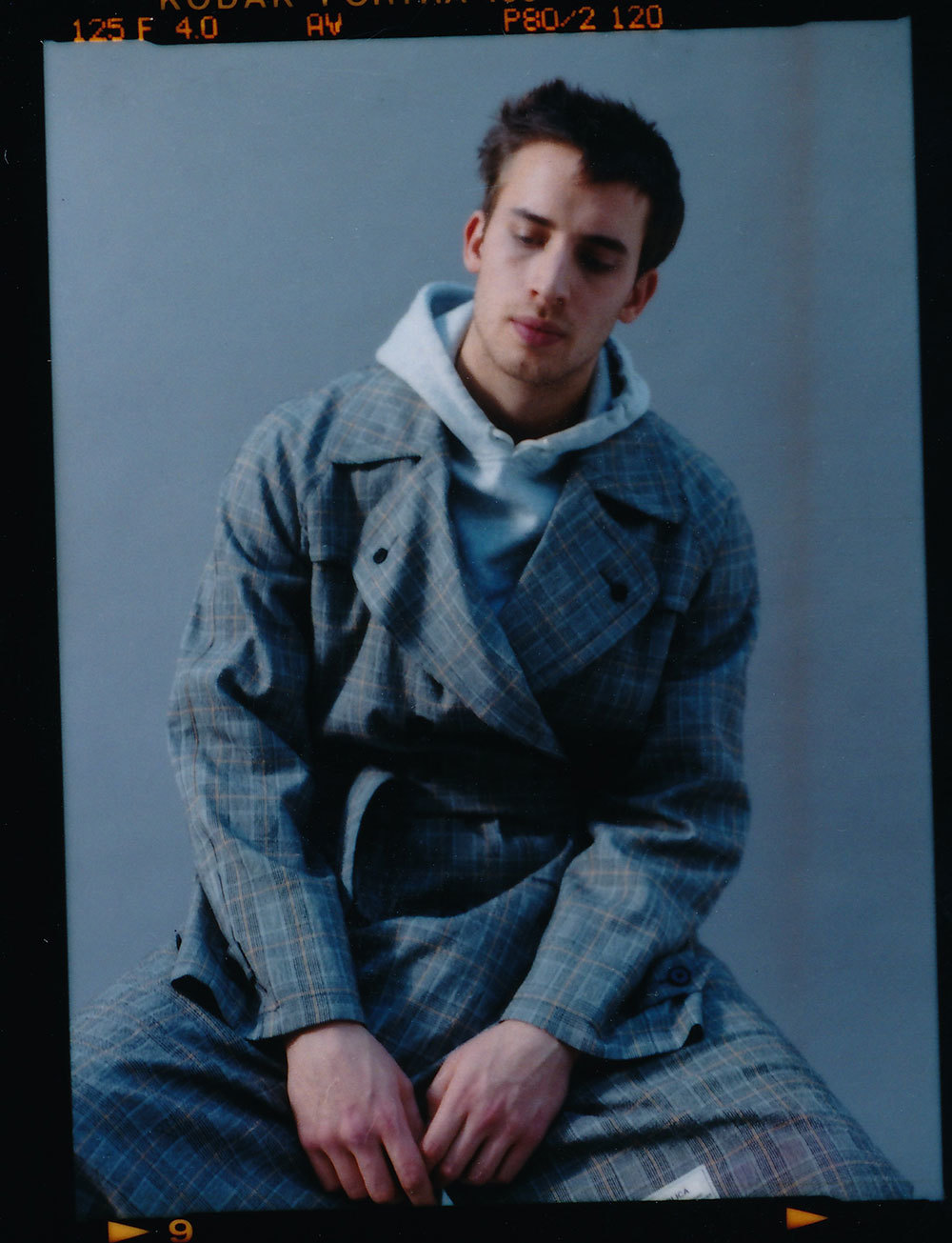
Jonas Bloquet, nominated for his role in Elle by Paul Verhoeven.
How do you feel about being one of this year’s most promising actors?
A great pleasure and satisfaction. It’s an amazing surprise!
How did you start acting?
It was around ten years ago, during an audition for a movie. I was chosen for the first role. I was 15, missed two months of school and was treated like a prince. It was beautiful and insouciant. Now it’s my job.
What’s your best memory from filming Elle?
Witnessing Paul Verhoeven’s work. My few scenes with Isabelle Huppert… The way she is on the film set, the way she prepares, it was a new experience for me. She is in her own little world and she never leaves it, except for when she goes to the theatre when she is not shooting. Working on this film gave me my first encounter with Alice Isaaz — she is a great actress.
What did you learn?
I learned a lot of things about acting. Paul Verhoeven is incredible. He is 80 but he never sleeps, he is always in great shape, smiling and calm. He is a great man.
If you could have dinner with any actor or director, who would you choose?
Tom Hardy, I would have a great dinner with him. If I could choose a director too, it would be David Fincher. I would ask him 10,000 questions: How does he work with his actors? What kind of methods does he use? How many takes does he do? I’d like to understand what happens in his head and what he does to create these perfect movies, with flawless acting.
What’s your dream?
My dream is to make a living from my passion.
What’s coming up next for you?
I’m going to Los Angeles for one month to go to auditions… Then, nothing.
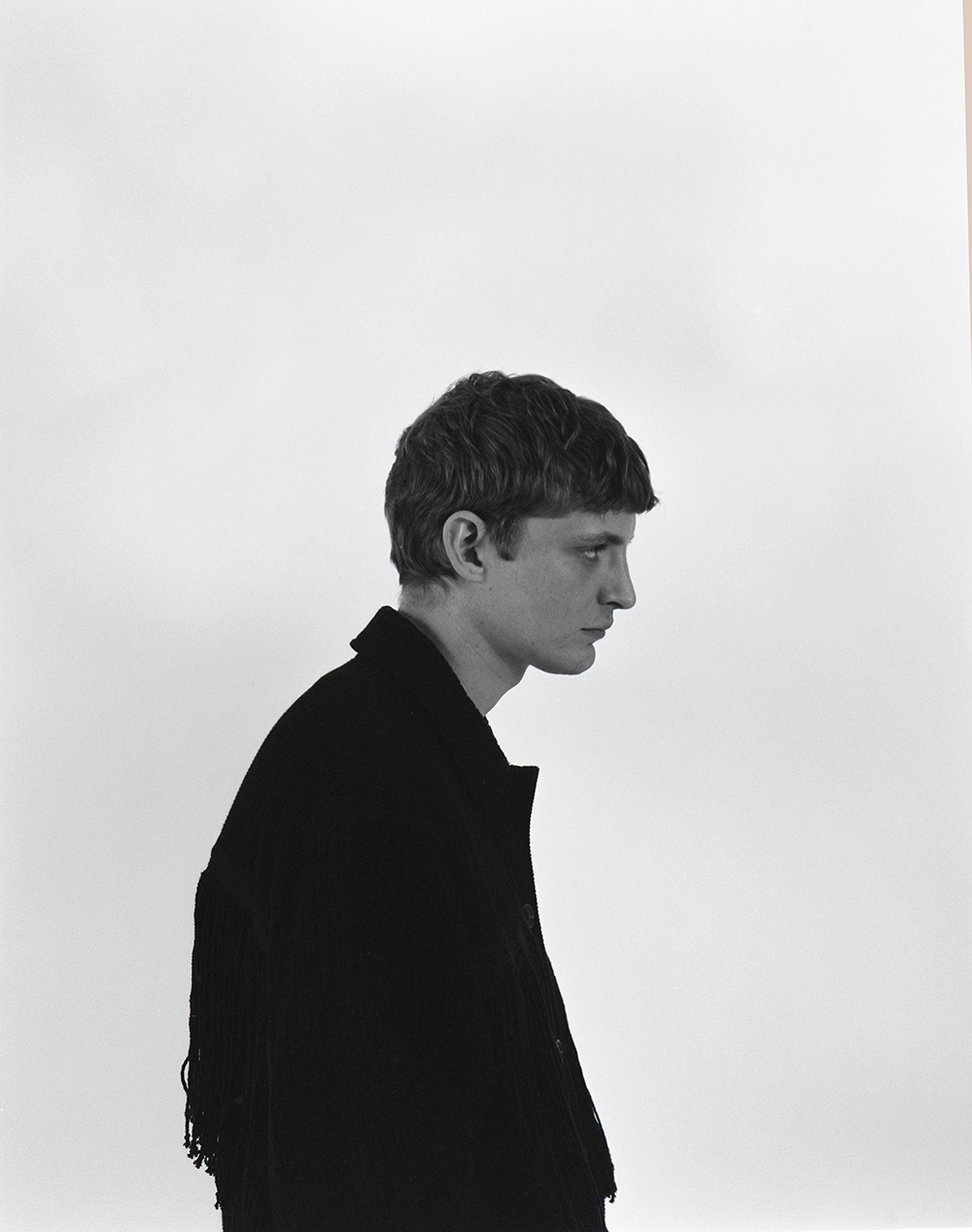
Niels Schneider, winner of Best New Actor for his role in Dark Inclusion by Arthur Harari
What does winning Best New Actor mean to you?
I’m really happy and proud of the work I did with Arthur, the director. We gave life to my character together. This feeling never left me while I was on set. Now that the film is done, I can’t see myself in it. Watching myself on a screen prevents me from seeing the film properly. Anyway, I never felt at ease watching myself on screen. What matters to me is the whole process that comes with making a movie, the rest is up to Arthur and I could not trust him more on that.
Do you feel that you’re part of a new generation of actors?
Being up for a César binds us in a way but I don’t feel we are part of a specific generation. I think what changes cinema is the vision, the writing of a director, a screenwriter. Actors are only executors. Creative executors.
How would you define French cinema?
I grew up in Quebec and I quickly became a cinephile with French cinema. Truffaut, Leos Carax, La Nouvelle Vague… France is really a place for artistic experimentation, a place where genres and ideas mix easily. Some say French cinema is like a big family, but I don’t agree with that. I can’t see Dany Boon, Leos Carax, and Desplechin sitting at the same table. What truly matters is that France holds very different talents and visions.
What is your favorite memory as an actor? What role really changed you?
The one for Diamant Noir, without a doubt. It was complex in its morals and values, emotionally charged and really far from my way of living and acting. Arthur Harari, who’s a great director, took me by the hand. His cinema has nothing to do with the cinema we know. At first sight, you could say he’s on the same line than Pialat, Rohmer, or Renoir in a very naturalistic way. But he’s also a real formalist with a true vision. His aesthetic fuels his narrative. His cinema is both personal and popular. While watching, you will first think his message is crystal clear: it’s a film about revenge. But in it, universal and personal stories coexist.
You come from a drama school background. How do you deal with those two separate universes: drama and cinema?
Drama has the ability to take you further than cinema would, as an actor. When you are on a movie set, it’s harder to let you go, to make mistakes, to take risks. Time is running out so you have to be perfect from the beginning. Drama allows more freedom and possibilities.
If you had to pick one film that really changed your way of thinking, what would it be?
If a film moves you, it will change you. That’s what emotion is about, I think. It has the power to blow your mind. A lot of films did this for me: especially those by John Cassavetes. Opening Night, Husbands…
What is your hope for the future?
We live in a real climate of fear and self-isolation so I wish the world will be more tolerant. I wish we could all look back and we don’t make the same mistakes again. Yesterday, I was watching the TV-debate between Marine Le Pen and Najat Vallaud-Belkacem and I just read some of the comments below. It was really terrifying. Since Donald Trump was elected, a lot more French people have taken the opportunity to say out loud their intolerant thoughts. That’s what happens when everything goes wrong in the world but I think we should all stay strong and true to ourselves, no matter how hard it is. We can’t fall in the trap of populism and its leaders, even if it’s tempting. Vote for someone who truly wants to help the people.
Do you believe in the power of cinema?
Cinema has the ability to spread powerful messages through emotion, yes. I’m thinking of propaganda cinema but not only that. All films are political. Some of them don’t claim to be but offer, like Les Rencontres d’Après Minuit, or Belle Dormant, a different and new vision of the world we live in. That’s what literature and cinema are about: visions and beliefs that are all the more needed in this time of crisis and broken dreams.
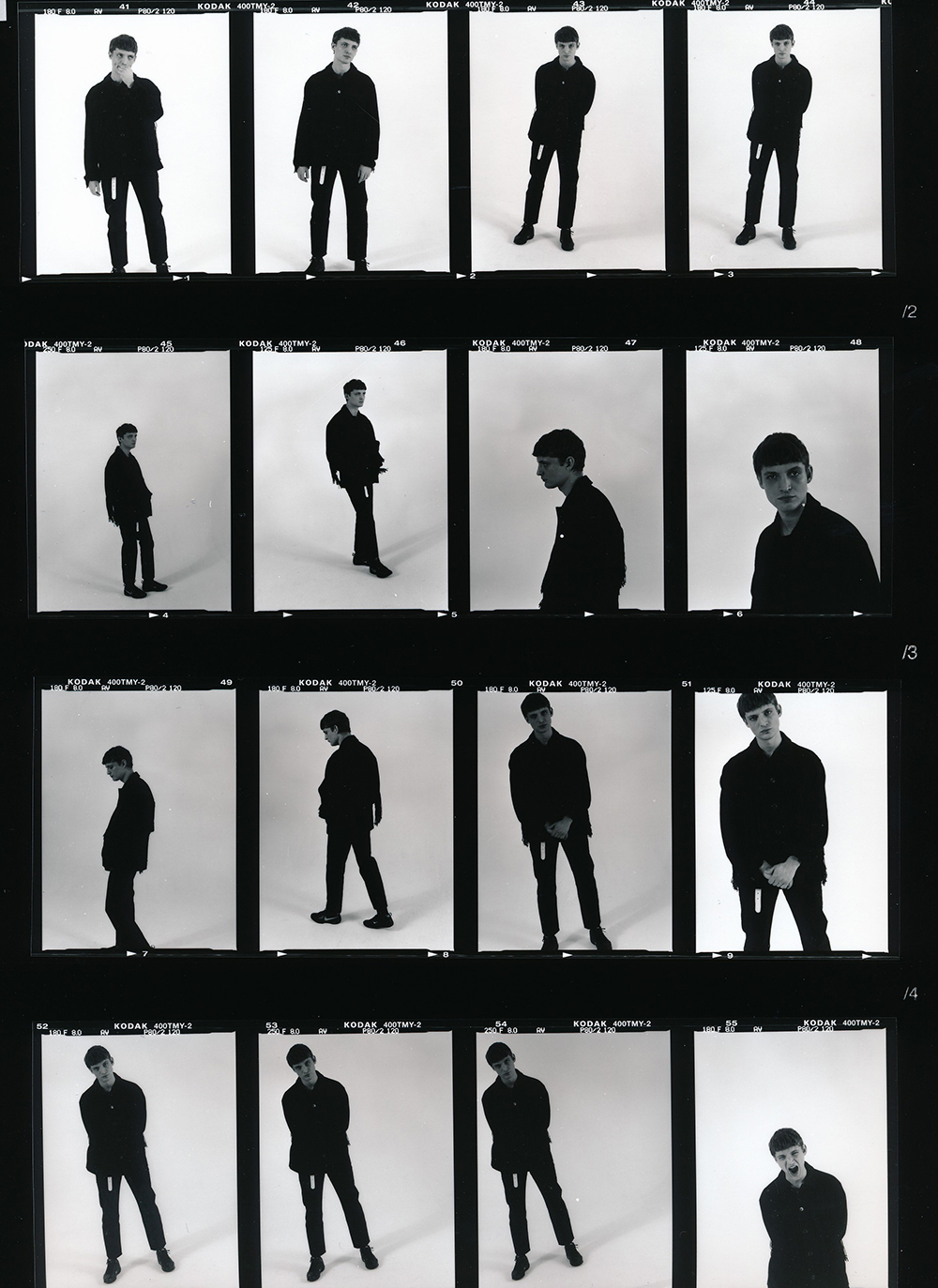
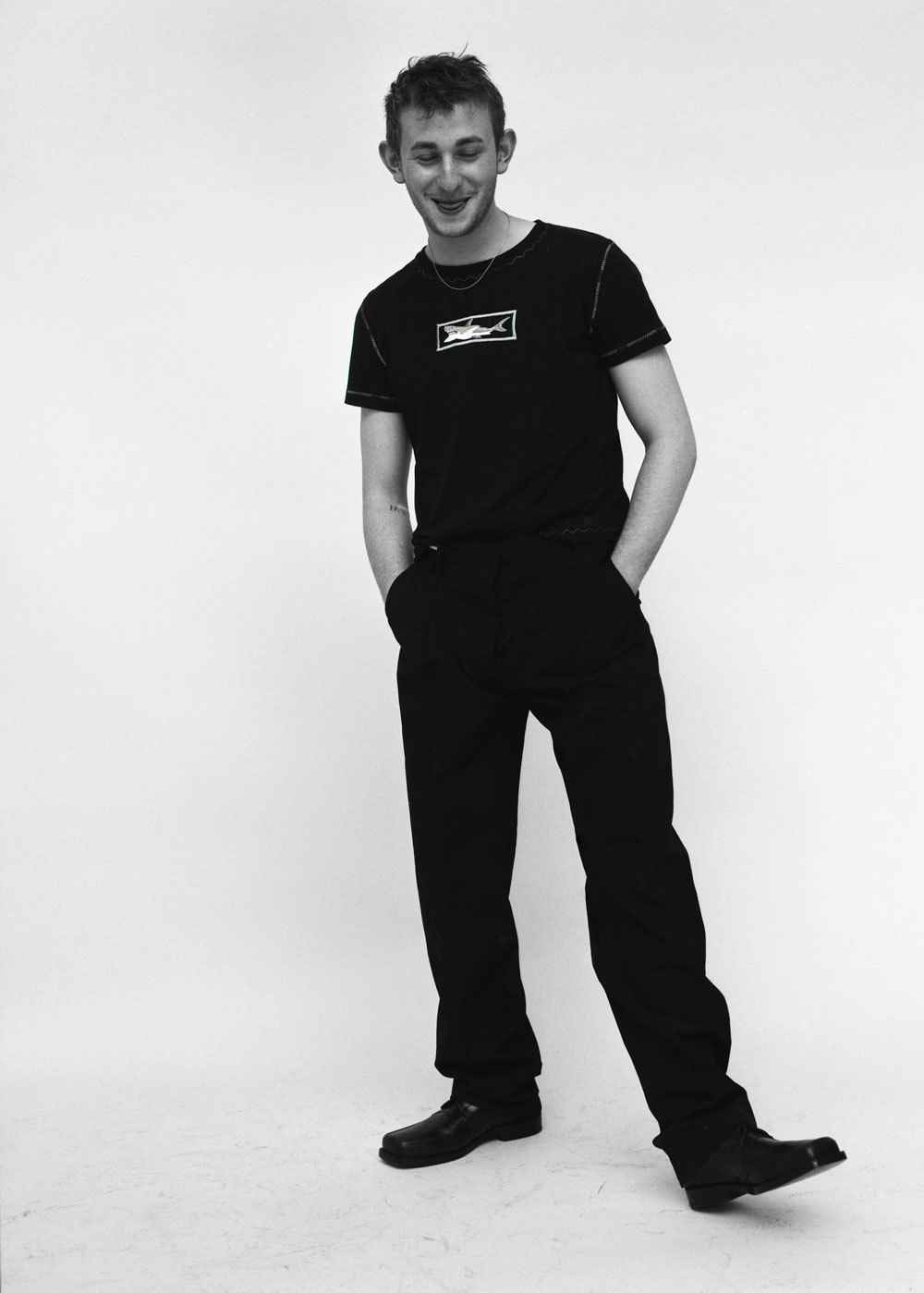
Kacey Mottet Klein, nominated for Being 17, by André Téchiné.
What does being nominated for Best New Actor mean to you?
It’s a reward and an appreciation. I’m part of a little team of young actors, who also are my friends. It’s pretty nice.
You’re young and already have enjoyed a great career. How do you deal with success?
I grew up with cinema and unfortunately didn’t realize the chance I was given right away. I gained notoriety quite quickly in Switzerland and I was awkward at times. I started in movies 11 years ago and I’ve had the opportunity to be part of wonderful, beautiful movies. I dropped out of school very young and I’ve never known anything other than film sets. Sometimes, it scares me a little.
What did you learn on set with André Téchiné?
The experience allowed me to discover my feminine side and to reconnect myself with my sensitivity. Alain is a great and sensitive person who tried to really understand us. He listened to us. That’s probably why his movie is so contemporary, because it never stereotypes youth in any sort of way.
What is your favorite memory as an actor?
As soon as I was in L’Enfant d’En-Haut, I knew I wanted to be an actor. I recently played in Marc Dugain’s film, L’échange des Princesses starring Anna-Maria Bartholomé, Lambert Wilson, and Olivier Gourmet. It’s a period film and I incarnate Louis I of Spain, son of Philippe V. It was such a great experience. Acting while being dressed in period costumes and wigs was fun. It changes the way you behave.
Which actors or directors would you love to work with?
I admire directors like Xavier Dolan for example. I don’t have a huge general knowledge of cinema as I try to stay away from that environment when I’m at home. But I’d love to act in blockbusters. Just to see what it feels like. And discover another way of working.
How does it feel, being nominated with your friend and partner in film, Corentin Fila?
It’s the icing on the cake! When I learned about my nomination, I didn’t know Corentin was selected as well. And I’m so happy we both are. It means we did it well.
What is your hope for the future?
I fight for sustainability and respect for nature. I think we should all realize how small we are compared to nature. People should remember that and start taking care of the future.
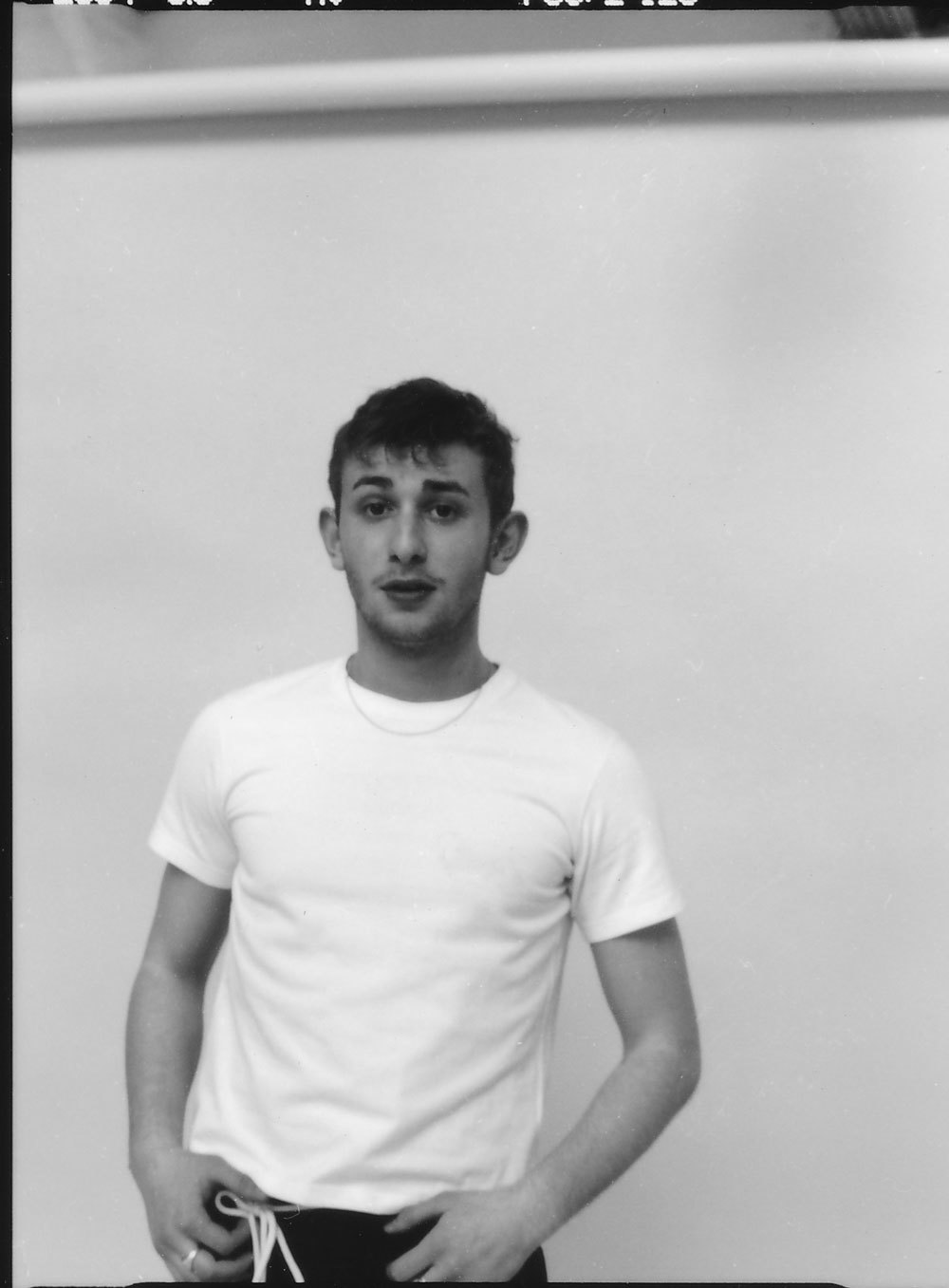
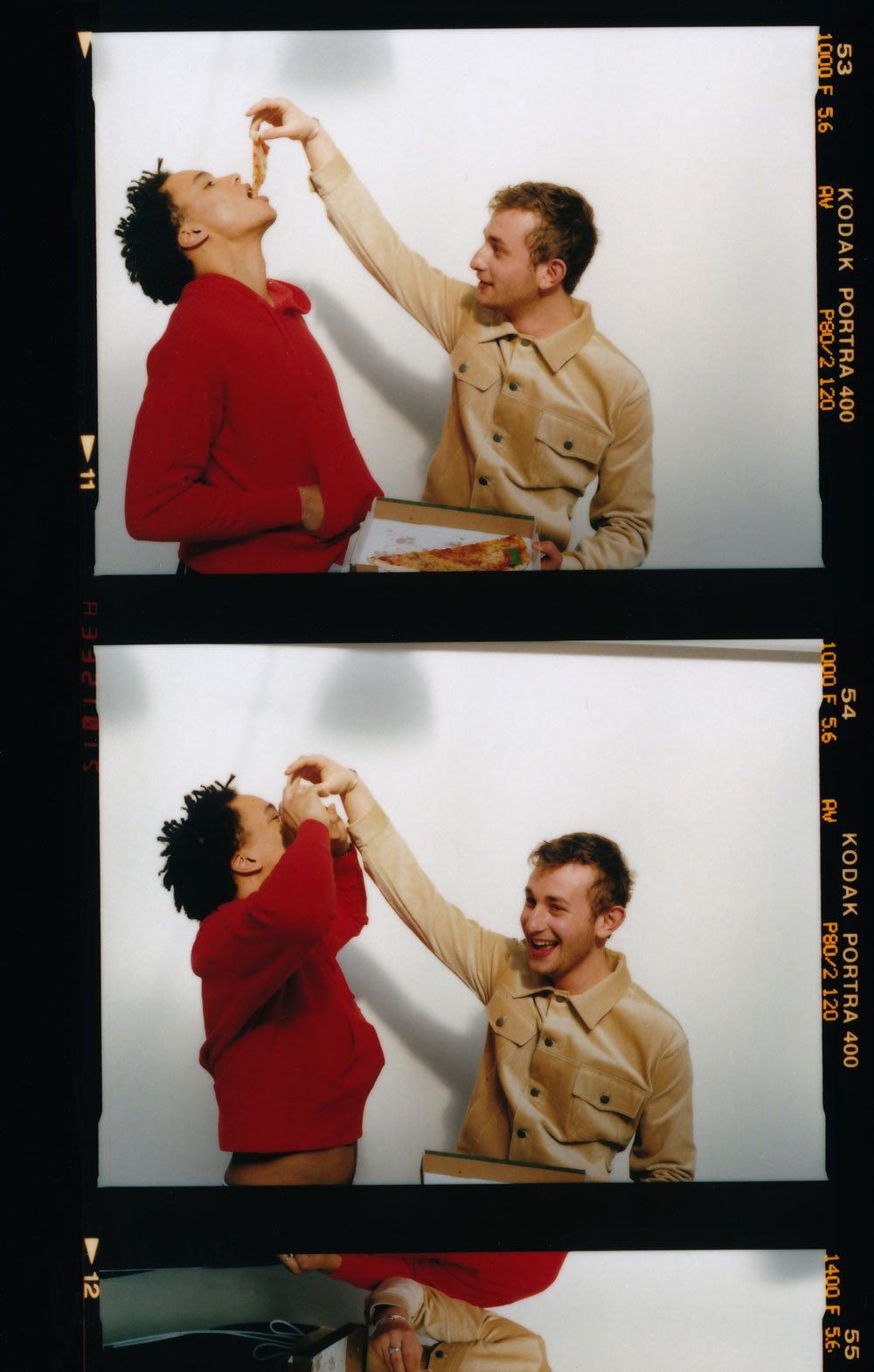
Credits
Text Micha Barban-Dangerfield
Photography Lasse Dearman
Stylist Xenia May Settel
Hair Rimi Ura
Make-up Aya Fujita pour Nars Cosmetics
Production Mayli Grouchka
